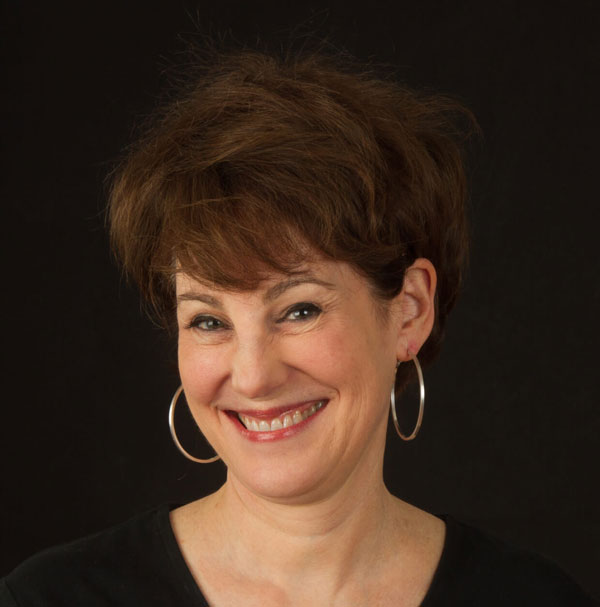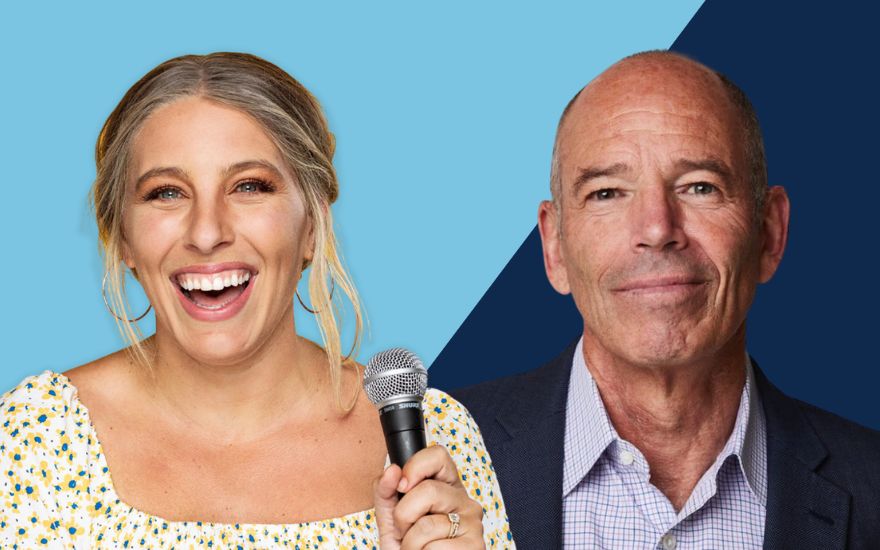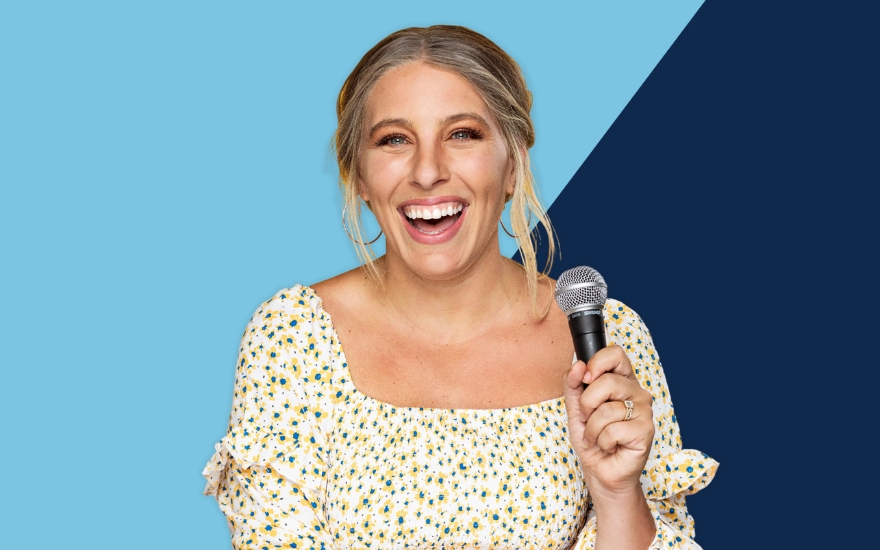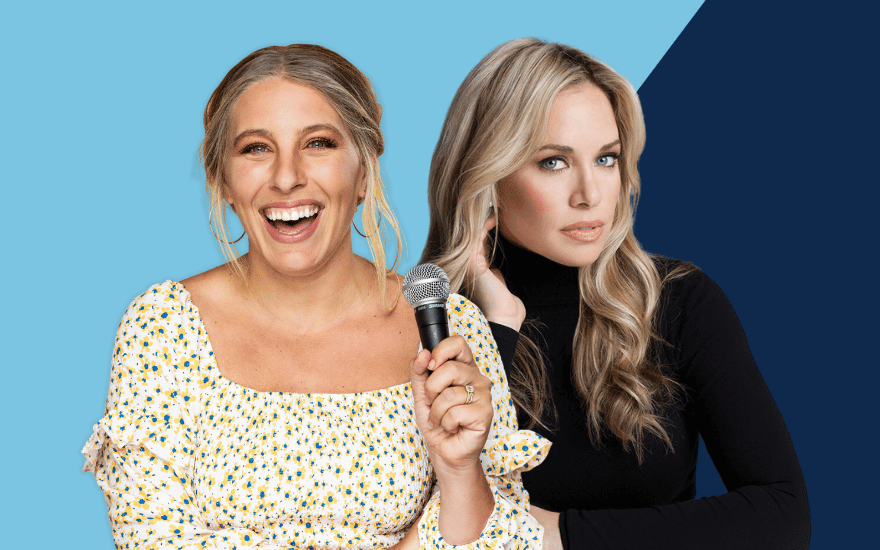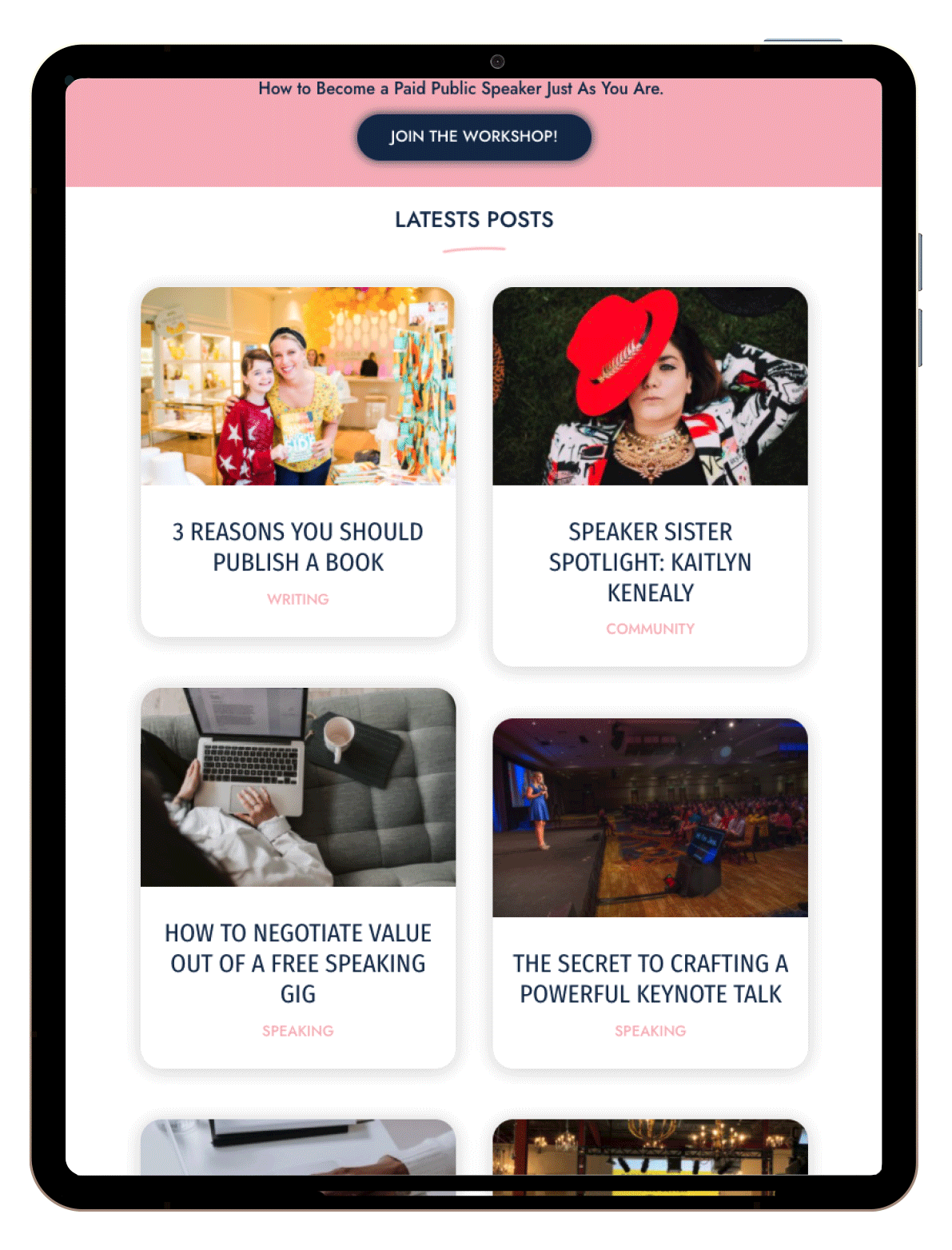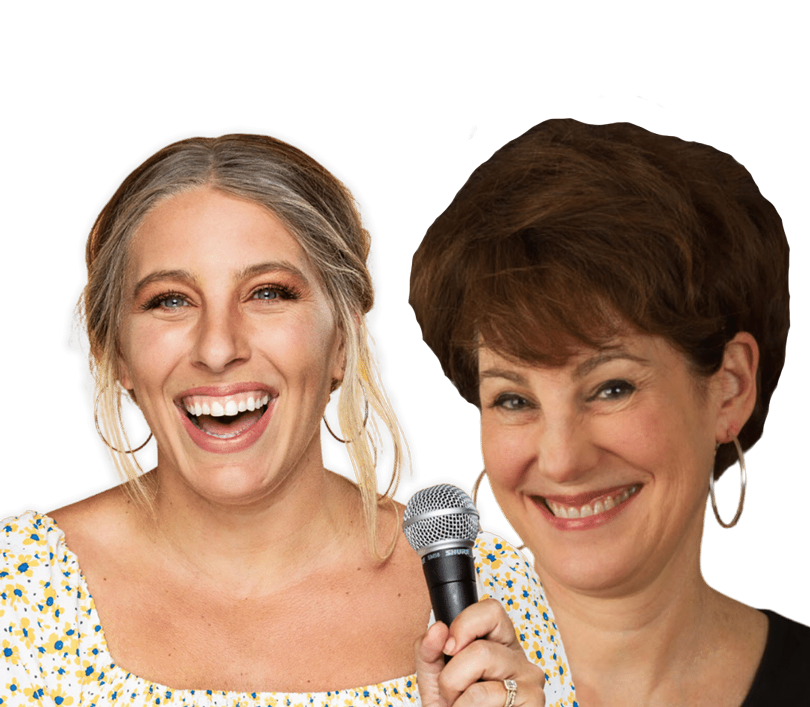


Speaking While Female: Are We Making Progress? Dana Rubin Has Thoughts



JUMP TO
PODCAST HOME
LISTEN TO THE EPISODE
ON THIS EPISODE OF AMPLIFY
Women’s voices have been suppressed for hundreds of years. Is it any wonder that we’re still facing a gender pay gap? We’re making progress, but we still have a long way to go.
Today, Dana Rubin joins the podcast to explore the evolution of women’s voices in history and the importance of inclusive communication. She discusses the need to document and share women’s speeches, as well as showcasing diverse speeches.
It’s time to amplify all voices for diverse perspectives – through effective communication strategies, the power of authenticity, vulnerability, and adapting speech to connect with audiences.
Dana Rubin is the author of “Speaking While Female: 75 Extraordinary Speeches by American Women”, and founder of the Speaking While Female Speech Bank.
FOLLOW Dana
ABOUT OUR GUEST – Dana Rubin
Dana Rubin is the author of “Speaking While Female: 75 Extraordinary Speeches by American Women”, and founder of the Speaking While Female Speech Bank.
SHOW NOTES
Women’s voices have been suppressed for hundreds of years. Is it any wonder that we’re still facing a gender pay gap? We’re making progress, but we still have a long way to go.
Today, Dana Rubin joins the podcast to explore the evolution of women’s voices in history and the importance of inclusive communication. She discusses the need to document and share women’s speeches, as well as showcasing diverse speeches.
It’s time to amplify all voices for diverse perspectives – through effective communication strategies, the power of authenticity, vulnerability, and adapting speech to connect with audiences.
Dana Rubin is the author of “Speaking While Female: 75 Extraordinary Speeches by American Women”, and founder of the Speaking While Female Speech Bank.
[01:56] Men’s voices dominate history, where are women’s?
[03:48] History lesson: Women were silenced, but spoke up.
[08:35] How we can support women to stand up and speak
[10:50] Including men in the conversation
[13:16] The power of the pause
[14:57] Overriding stereotypes
[17:04] Embracing emotions and authenticity
Amplify with Jess is produced by Earfluence, and brought to you by Mic Drop Workshop.
TRANSCRIPT
Dana Rubin – 00:00:00:
With each generation of women that comes up, women are more confident. Women have more role models to inspire them and to model themselves after. It is not a level playing field. And as long as it’s not a level playing field, we have to up our game. We have to sharpen the way we speak. We have to learn to be confident, decisive, authoritative so that we can override all of those prejudices.
Jess Ekstrom – 00:00:33:
Welcome to Amplify with Jess Ekstrom, a show designed to help women get out of their head and into their zone of influence. Okay, so I’m going to tell you how we met our guest today. I was on LinkedIn doing some research about women and speaking, and I found this incredible article about all of these amazing women’s speeches throughout history that weren’t documented. And who was the author? Our guest today, Dana Rubin, author of Speaking While Female. After Dana and I got talking, I realized that a lot of times when we say women have been silenced throughout history isn’t actually true. Women have been speaking throughout history. They just haven’t been documented. So Dana is on a mission to help document and share these women’s speeches throughout history and also help women today share their stories. So let’s welcome our guest, Dana Rubin.
Dana – 00:01:25:
When I was immersed in the world of speech, that is public speech, oratory, public rhetoric, that I started to notice a distinct absence of women’s voices. And I would notice also, I judge speech writing contests. I started to notice and get very irritated by all the quotes of Churchill, Winston Churchill, who was a fabulous speaker, obviously one of the great statesmen of the 20th century. But I thought, why are people always quoting Winston Churchill? And then ofcourse, from that, I extrapolated not just Winston Churchill, but Abe Lincoln, Frederick Douglass, Martin Luther King Jr., Robert, you know, RFK, JFK, all the men, and also Gandhi. And I mean, around the world, it’s always men’s voices in history that are celebrated. And that’s really what catapulted me into this subject. Where are all the women speakers?
Jess – 00:02:30:
Yes, and I think that that’s something that… One of the things I learned from you in that first LinkedIn article before I even got Speaking While Female is we’ve been told this narrative that like women have been silent or women have been silenced. And you don’t agree. So what is your take on that?
Dana – 00:02:53:
Well, I wouldn’t say I don’t agree. I would say that the truth is more complicated.
Jess – 00:02:57:
Okay.
Dana – 00:02:57:
It’s always more complicated. There’s always a push and then a pushback. Progress, if we believe in momentum of humanity, we’re moving forward towards a progressive ideal of reform and greater advancement. I think there’s always movement and then pushback and movement and pushback. I maintain that for all of the effort to quash women’s voice, all of the efforts to exclude women from the public sphere, not letting women obviously have the vote, not letting women be statesmen, not letting women be in the military, heads of military, not letting women be on the pulpit, all of these ways to exclude women’s voices and ideas resulted in a pushback. Yes, women were silenced. But yes, they spoke up.
Jess – 00:03:50:
They spoke up.
Dana – 00:03:52:
Resisted.
Jess – 00:03:53:
Yeah. And I mean, it reminds me of like when George Floyd was happening, people were saying, you know, racism and these acts aren’t new. They’re just being recorded. And when you think about like what we know as history, it’s what was actually recorded. And so, so much has happened for women and women have spoken up, but what has been recorded and documented? And that’s what is so amazing about Speaking While Female. And I absolutely love this book. Anyone who is watching, listening, get Speaking While Female. This is like the perfect, you know, like one speech a day, I think is a great way to digest it. But I had no idea some of these speeches, I mean, most of them, I’ll admit, like I didn’t even know existed because we weren’t taught it in school. I know it’s probably hard to pick one, but is there one speech for you in your book that maybe you think is like the one that people should know that, that this happened. And this was a pivotal moment in history that maybe you didn’t learn about.
Dana – 00:05:03:
Well, so I will say this. That is the question I get asked most often. What is your favorite speech? And I always say that I don’t have a favorite because, not just because they were all important, which they were. It’s critical to point out to the audience that this is a very diverse collection. It has speeches by women across the ideological spectrum. It has women from the left and the right. It has Black women, White women, and Indigenous women, Latino women, Asian-American women. And I couldn’t possibly pick a favorite. I just couldn’t because each one has a specific point in history, each one opens up a whole universe around it. But this is the point I would make is that I don’t just have the book. As a companion resource, I also created a website. It is called speakingwhilefemale.co. And that’s where I have thousands of additional speeches by women from across time and from around the world. And I am constantly adding more speeches to that resource. And so I always say when someone asks me, what is my favorite speech? I always say it’s the one that I added this morning at two o’clock this morning, the latest speech I added, because every time I add a speech, I feel like my head is going to explode because it opens up a whole new world of women’s agency, women’s involvement in history, women’s influence that I had no idea about.
Jess – 00:06:34:
One of the things that I loved about the book is you also gave like, it wasn’t just a speech, is you gave background and context to each person before you read the speech. I mean, even like looking at Rachel Carson’s, like knowing that she was suffering from cancer and this was in the last year of her life and she needed to hold her head up with two hands while delivering that speech. I mean, you read it in such a different lens and different light. So I love the context given before each one. Okay, bigger question. Do you think that we’re getting better with women’s speech? I know that also there’s also different microphones now. There’s online. There’s what we’re doing right now. Do you think that we’re getting more advancing?
Dana – 00:07:24:
Oh, there is no doubt. There’s absolutely no doubt we’re getting much better. I’ve been a speech coach helping clients in the workplace learn how to speak more powerfully. And in the years that I’ve been doing it, I’ve seen a big difference. With each generation of women that comes up, women are more confident. Women have more role models to inspire them and to model themselves after. And women have fewer of the inhibitions and insecurities around putting their voices out into the world, making that simple statement, I have something valuable to say. I am an expert. The world needs to hear what I have to say. So I think we are moving forward rapidly. But it doesn’t mean that we’re where we need to be yet. There are still overwhelmingly more women than men do need encouragement and support to put themselves in that position, which in essence is a vulnerable position. So we’re not where we need to be. But I’m hoping that this book and the conversations around it will help advance that forward movement.
Jess – 00:08:35:
And I guess even for, I know there’s a lot of women here in the chat, but even for men who are listening, like, how do we support and encourage women to speak and use their voice? And not just in the context of history or politics. But at work, in your kid’s PTA meeting, if you think something new, how do we, I guess, foster that better?
Dana – 00:09:04:
Well, I think that there are a couple of levels to that. One is, of course, knowing that it’s important for all voices to be heard and supporting women when women have something to say, not, you know, interrupting, allowing women to put their two cents into it, speak from their own point of view. But I think on a more fundamental and profound level, there’s the awareness that when you’ve had a conversation, when we’ve had a discussion, when we’ve had a meeting, look around and say, whose point of view has not been expressed? Whose experience is not part of this discussion? And if you do that, you will draw in more voices. And frankly, not just women. I mean, I don’t want to paint a black and white picture. It’s not only women who have a hard time putting their ideas into the conversation. A lot of men do too. Now, I always say more women than most men have this challenge, but not every man is a fluent, bold, confident speaker. And some women don’t need help at all. So I think we’re at a really good place right now, but we can all do better as speakers, as contributors to the conversation, and as allies helping other people, helping ensure that we truly have a diversity of ideas and experiences as part of the conversation.
Jess – 00:10:31:
Yes. And Elizabeth in the chat said, I remember asking my male boss to come to a networking event for our women’s company, ERG. And he said, why would I come to that? And I said, because we need you or nothing changes here. And he said, I’ll be there. That is the perfect response to that. It is, you know, and I think sometimes like, you know, Mic Drop Workshop is built just for women. And so we’re in a women’s space. A lot of the places that I speak at, and I’m sure that you speak at are women’s focused events, but you know, I sometimes have to catch myself of making sure I’m including men in the conversation.
Dana – 00:11:09:
Yeah, there is nothing that I talk about and nothing that I recommend. No tip, no suggestion that is not applicable to both men and women. I think we’re all in this together.
Jess – 00:11:21:
Yes. But I do want to get into some of the dialect because there’s some interesting research, even around the tone and decibel of women’s voices versus male voices. And just literally hearing and being heard, male voices are just inherently louder than women’s voices. And so you work a lot with executives, companies, you know, talent on their way up, just like overall speech and confidence. Do you have tips or advice for someone who is just looking to speak more confidently?
Dana – 00:12:02:
Yes. I mean, how many hours do you have? It’s interesting that you said men are inherently louder. I’m not sure that I’ve noticed that. I’m sure it must be true, but let’s look at the physiognomy. I mean, physiology. Men are generally, generally, not everyone, but generally men are larger. They have larger lungs, larger lung capacity, which means breath and projection capability of projecting longer, and I suppose louder too. They also have longer vocal folds, vocal cords, which deepens their voices. And so we’ve come to associate deeper voices with authority. And I always suggest to women that they accept their voices and their pitch the way they are, because it’s a process, it’s a function of their physiology and who they are. But to be aware that when they want to make an important point. When they want to be listened to and remembered, to always go down, to not end going up, not end in a questioning way, but to go down, to speak with confidence, to speak with authority, and to use those pauses. Use the power of the pause. Have the confidence to say, this is important. And then let that sink in.
Jess – 00:13:32:
That, like, even just you delivering that on the other end, I’m like, I am listening. Because you’re right, if the voice has that inflection at the end and it rests on your ear is more of a question than a statement. You know, it doesn’t have that same, that same point to it.
Dana – 00:13:54:
And one of the things that’s been especially enlightening and maddening to me as I’ve done this research over essentially 400 years of American history is to see that the prejudices and the critique of women’s voices has been going on all along. From even the earliest days of the Republic when women were speaking, they were criticized. I know because I’ve gone back and read the newspaper clips and the articles about them. Women criticized as being shrill, as being high-pitched, as being all the epithets that are used, you know, against women. Women at complaining. Women, it’s notorious that women are criticized for complaining, whereas a man who makes the same observation is not, doesn’t get saddled with that cloak of criticism. So we have to be aware that we are, that it’s not a level playing field. Not yet. It is not a level playing field. And as long as it’s not a level playing field, we have to up our game. We have to sharpen the way we speak. We have to learn to be confident, decisive, authoritative, so that we can override all of those prejudices, stereotypes that undermine the power of our message.
Jess – 00:15:15:
A hundred percent. And, you know, I, I battle sometimes with. Not wanting to, like, I don’t know if this is the word, masculine, you know, myself in order to get noticed or be taken seriously. But then at the same time, there’s certain dialects and things that you’re saying that are just what people interpret. And KM just put in the chat, when I speak on my online marketing platform, which is 60% male following, I speak with my lower registry. When I speak to my fiction author fans, 90% female, I speak with my higher registry. The way I speak draws in different audiences and I’ve learned a lot about it over the years.
Dana – 00:16:03:
Let me make a parallel observation. People often ask me whether women speak more passionately than men and whether women are more emotional than men. And a correlated question is, how can we as communicators and speakers harness passion and emotion and not get criticized for it? And it is true. Women who, for example, get very emotional, women who cry, have often been derided and undermined for that. But again, I believe we’re moving into an era in which it is acceptable for men to show emotion. We’ve had examples of leaders at the national level, like President Obama. I think he’s famous for having wiped away tears. It’s now acceptable for men to show more emotion. And it’s acceptable for women to be steely and to be definitive and firm. So I think we have at our accessible to us a wider range of emotional responses to draw on. And that’s all to the good. It makes us able to be more fully human, to be more fully human beings when we speak, when we communicate.
Jess – 00:17:19:
Yeah, there’s something to be said about not having to step into a role. Sometimes, you know, for some people in speech, I feel like that’s helpful to say, okay, I’m putting on the blazer and I’m becoming the speaker. But I think for most people, including myself, to feel like I can walk up on stage and speak and not have to turn something on or something off is helpful. And I love that that’s being more widely accepted [inaudible].
Dana – 00:17:52:
Yes. Don’t forget that one of the most powerful tools that we have in our toolbox is authenticity. Being ourselves, being the best version of ourselves. I mean, we all have all kinds of characteristics and traits that we don’t want to put on display for everybody, but being the best of ourselves, but being ourselves, having personalities, having personality quirks, putting that out there as a way of showing that we are all in it together because we are all human beings.
Jess – 00:18:22:
Yes, I love that. And Elizabeth says, I no longer apologize for my emotions. I’m human. I think we need to model this vulnerability. Sometimes when I speak, I get emotional. And I have told this story many times, but each day it can hit me differently. And I think that, one thing I remind people in Mic Drop Workshop is people in the audience need to be able to connect the dots between where they’re sitting and where you’re standing. And so if you are speaking down and only, you know, in this untouchable perfection, you know, not a drip of emotion or fear, then it’s really hard for someone in the audience to say, that could be me or she’s has some similar experiences that I do. So to be able to show up as yourself, to show some emotion, to not have to leave yourself in the parking lot can make you a more impactful speaker. As we close, first off, just a reminder, everyone grab Speaking While Female. And if you’re not following Dana already on LinkedIn, please do that and definitely check out her speech bank. What’s the website for that one more time?
Dana – 00:19:29:
speakingwhilefemale.co. It’s not .com, .co.
Jess – 00:19:33:
.co. One more piece of advice. A lot of people who are listening or watching are either aspiring to speak better at work or looking to become a professional keynote speaker. With all the speeches that you’ve looked at, with all the people that you’ve worked with to become better speakers, is there any through line that you can give us as to like, this is the thing, you know, that you should work on?
Dana – 00:19:58:
Yeah, that’s easy to answer. Without doubt, the more you speak, the better you get. And that applies to every single human being. The more you speak, the better you get. Now, I have to say, sometimes we have bad habits and we just keep doing the same bad thing, the same ticks over and over. We say, you know, you know, you know, or whatever. But I mean, in general, get more experience. Join Toastmasters. Go call up your local Rotary Club and speak to the Rotary Club. Join, you know, the National Speakers Association. Get more opportunities to speak. And if you speak about your topic and your expertise and you do it five times, you’re going to be so much better. The fifth time you do it, you’re going to be so much better than the first time because you’ve already figured out what’s the best language to use. You don’t have to stumble around for the word that you want. You have already a store or a cache of stories to draw on that you can tell. And the fewer options, the more that knowledge is secured in your brain, in your consciousness, then the more confident you’re going to feel when you speak because you don’t have to fumble around for the material. So get more experience, however you can. Get up and speak more.
Jess – 00:21:18:
Get those reps in, as I like to say. And, you know, that goes to say too, is like a lot of times, each time we go up there to speak, it’s like, we want to say something new. I say, get good at something. You know, what’s the thing that you want to be known for and get those reps in. But Dana, thank you so much for being here. Grab Speaking While Female. I am so glad that I stumbled upon your LinkedIn article and we’ve been able to work together in a small way, which I think will be a bigger way in the future.
Dana – 00:21:49:
Well, I’m indebted to you too. We are allies working towards the same goal and I look forward to much more of that in the future. Thank you.
Jess – 00:21:55:
Thanks everyone for tuning in.
Dana – 00:21:58:
Bye everyone.
Jess – 00:22:04:
Thanks for listening to Amplify. If you are a fan of the show, show us some podcast love by giving us a rating and review. And give us a follow @MicDropWorkshop and @JessEkstrom. This episode was edited and produced by Earfluence, and I’m Jess Ekstrom, your host. Remember that you deserve the biggest stage. So let’s find out how to get you there. I’ll see you again soon.
MORE FROM THE AMPLIFY PODCAST
Netflix Co-founder Marc Randolph on Testing New Material On Stage
JUMP TOPODCAST HOMELISTEN TO THE EPISODEON THIS EPISODE OF AMPLIFYAs co-founder and first CEO of Netflix, Marc Randolph led the company from its inception in 1998 through its IPO in 2002. He left the company a year later to pursue other passions, which includes public...
More Doors Open When You Take the Opportunity
JUMP TOPODCAST HOMELISTEN TO THE EPISODEON THIS EPISODE OF AMPLIFYWhen Jess was in college, she applied for an internship with NBC’s Today Show…and got it. In the back of her mind though, she was pretty sure she only got the job for a nefarious reason. But did that...
Creating Confidence On Stage, with Heather Monahan
JUMP TOPODCAST HOMELISTEN TO THE EPISODEON THIS EPISODE OF AMPLIFYToday we explore what many of us struggle with - the power of confidence and self-belief. The trick is that confidence is a muscle we can work on every day, and we can create a strong foundation from...

Mic Drop Workshop® helps women tell and sell their story as paid public speakers
Subscribe to our weekly newsletter!
Receive direct access to upcoming events and event planners who are looking for public speakers, keynote speakers, motivational speakers, event industry trends, and our favorite speaker products & services.
© Copyright 2024 Jess Ekstrom. All Rights Reserved | Terms & Conditions | Privacy Policy | FAQ | Contact
Website & Branding Design by Orange Moss Creative




